Finding the Best Cruises | Cruise Guide with Tips & Tricks
This cruise guide is crafted for value-conscious travelers seeking affordable ways to explore and visit new countries. It is not intended for those seeking to show off or celebrate anniversaries lavishly on their cruise vacation.
Table of Contents
- Purchasing a Cruise
- Choosing a Cruise and Cabin
- When to Buy a Cruise?
- Gratuities, Tips, Taxes, and the Total Cost
- Compilation of Cruise Lines: Owners, Price Levels, and Tipping
- Tips & Tricks
- Beyond the Love Boat Illusion
- Reasons for Avoiding Cruises
Purchasing a Cruise
Our top two reasons for cruising are: Firstly, it is an inexpensive way to visit some travel destinations and collect countries. For instance, if you plan to visit small Caribbean or Pacific islands by air, the cost can be as high as US $1000 per island. In contrast, a cruise can reduce the expenses by tenfold. Another compelling scenario is crossing the Atlantic. For the cost of a flight, you can book a two-week cruise that includes entertainment, accommodation, and board.
Secondly, cruising is a safe and easy way to travel. On a cruise, you can leave your valuables onboard in a safe while exploring onshore. In the event of any trouble, the only loss would be your replaceable cabin key. Many small island states can be fully explored in a single day, making extended stays in such places both costly and boring.
Choosing a Cruise and Cabin
Buying a cruise is not a simple task. Cruise lines are doing their best to make comparing prices difficult using pricing packages, gratuities, and taxes to obfuscate the total cost.
There are three types of cruises to choose from: short, repositioning, and long cruises. Short cruises that last from a few days to a few weeks are the most common. They depart and return to the same port and on the way make stops called port calls. Port calls typically last from a few hours to a few days. They are your chance to leave the boat to explore the surroundings.
Repositioning cruises are one-way itineraries. They are offered when cruise seasons change, and cruise ships are repositioned to new locations. For example, cruise ships tour Alaska and the Caribbean during the winter season in the Northern hemisphere and move to the Mediterranean and South America for the summer season. Such cruises attract pensioners and are usually not overcrowded.
Long cruises take more than two weeks and can explore various areas, or even circumnavigate the world. They are significantly more expensive than other cruises, and ships are usually smaller and older. We have not tried such cruises yet, but if we ever do so, we promise to document and share our experiences in a future blog post.
The next step involves selecting the most suitable fare type. "Cruise only" and "non-refundable" fares represent the most economical choices. The "Cruise only" option encompasses only the basic fare without any additional inclusions, while "non-refundable" implies that you cannot obtain a refund for your purchase. Refunds, in general, can be intricate, incurring costs that hinge on when you decide to modify or cancel your cruise.
On the other hand, the "All-inclusive" fare, despite its name, doesn't truly cover everything. It includes a limited array of alcoholic drinks, soft drinks, special coffees, and a slow internet connection. If you require a faster internet connection, be prepared to pay a substantial extra fee, possibly exceeding the total price of your cruise. Anticipate encountering a lagging and unreliable connection that may not be consistently operational. The same holds true for alcoholic beverages. Opting for a drink package or frequenting bars may lead to spending more than your usual budget for drinks, as you may find yourself consuming more to maximize the value of your purchase.
Cabin types include inner cabins, sea view cabins, balconies and suites. Inner cabins have no windows and they are typically located on lower decks. Sea view cabins have a window, but the view is not always unobstructed and windowses may be dirty. Sometimes more expensive cabins have higher gratuities. We prefer to sleep well and therefore choose the cheapest inner cabins. Without a window, the cabin is dark. Furthermore, inner cabins tend to be a bit less noisy excluding the engine hum.
When to Buy a Cruise?
After experiencing several overbooked Royal Caribbean cruises, we decided to shift our approach and began opting for last-minute cruise bookings. Our dissatisfaction with the lengthy search for a free table at their buffet restaurant, combined with the underwhelming quality of the "Global & Delicious Food" leftovers, led us to explore alternative options.
Cruise lines typically reduce their prices as the cruise date approaches to fill up remaining spots on the ships. Depending on the cruise line, the optimal time to purchase a cruise may be 1-2 weeks before the departure date. Monitoring price changes provides insights into the best booking window. Booking earlier often results in higher costs and an increased risk of joining a fully booked cruise, where passengers queue and fight for resources.
However, there are downsides to booking last minute, particularly in terms of higher flight prices. Cruise ships accommodate thousands of passengers, filling up flights quickly. It's essential to leave a safety margin for unforeseen flight delays or cancellations. We encountered a fellow passenger on a repositioning cruise who waited for his delayed parents to join. Despite booking a new flight to the first port of call, Azores, they missed the ship's departure due to a pilot strike. Unfortunately, the ship couldn't make a port call in Azores, forcing the parents to return to the US empty-handed.
Gratuities, Tips, Taxes, and the Total Cost
When searching and comparing cruises, it's essential to consider all factors contributing to the total cost, which represents the price you will ultimately pay for the cruise. Gratuities, also known as tips, vary among cruise lines – some do not charge them at all, some offer adjustable gratuities, and others have mandatory gratuities. The mandatory ones essentially conceal a portion of the cruise price as the tip. For example, cruise lines Costa, Norwegian, and MSC have compulsory gratuities, making you pay 30-70% more than the advertised cruise price. This bait-and-switch pricing scheme renders them more expensive than those offering adjustable gratuities.
In addition to the cruise price and gratuities, there may be port charges and government taxes and fees. When comparing prices, always inquire about the total cost to ensure comparability and avoid unpleasant surprises later on. Below is a list of cruise lines, their owners, price levels, and tipping policies as of December 2023.
| Cruise line | Ownership | Price level | Gratuities per person |
|---|---|---|---|
| Azamara Cruises | Sycamore Partners | $$$ | – |
| Carnival Cruise Line | Carnival Corporation & plc | $ | $16-18, adjustable |
| Celebrity Cruises | Royal Caribbean Group | $$ | $18-23, adjustable |
| Costa Cruises | Carnival Corporation & plc | $ | 10-11€, mandatory |
| Cunard Line | Carnival Corporation & plc | $$ | $14.50-16.50, adjustable |
| Holland America Line | Carnival Corporation & plc | $$ | $16-17.50, adjustable |
| MSC Cruises | Mediterranean Shipping Company | $ | $10-16, mandatory |
| Norwegian Cruise Line | Norwegian Cruise Line Holdings | $ | $20-25, mandatory |
| P&O Cruises | Carnival Corporation & plc | $$ | – |
| Princess Cruises | Carnival Corporation & plc | $$ | $16-18, adjustable |
| Regent Seven Seas Cruises | Norwegian Cruise Line Holdings | $$$$ | – |
| Royal Caribbean International | Royal Caribbean Group | $ | $18-20.50, adjustable |
| Seabourn Cruise Line | Carnival Corporation & plc | $$$ | – |
| Silversea Cruises | Royal Caribbean Group | $$$$ | – |
Tips & Tricks
- ALCOHOL: One of the primary revenue sources for cruise lines is alcohol. In addition to the cost of expensive drinks, you'll pay a 20% service charge. Cruise lines also confiscate any alcohol you attempt to bring onboard from port calls. Some allow you to bring a bottle or two of wine initially but charge a corkage fee (around US $20-25). Cruising without alcohol can be both the cheapest and most enjoyable option.
- COVID: The hysteria revealed the true nature of cruise lines. During the plandemic, cruise lines invaded customer privacy and changed requirements arbitrarily. Be cautious about future hoaxes, don't rely on cruise lines to keep promises, and be prepared to lose money on a cruise. Booking closer to departure reduces the risk.
- GRATUITIES/TIPS: Avoid supporting pricing scams by boycotting cruise lines with mandatory gratuities. Opt for cruises with no or adjustable gratuities, and visit Guest Services upon arrival to remove automatic gratuities. This way you control whom to tip, and it's more likely your money goes directly to the person you want to reward.
- FEATHERS: If you're allergic to feathers, check your cabin for feather pillows and blankets before use, as some cruise lines use them without checking for allergies.
- LIST PRICES: Ignore list prices as they are typically marketing tactics, and nobody pays them.
- MSG, SALT and SUGAR: Some cruise lines use MSG, salt, and sugar abundantly. If you have developed MSG intolerance or prefer a low-sodium or sugar-free diet, be careful. Inquiring about specific ingredients is futile. Staff lack detailed information and tell you what they think you want to hear. The same foods are available across all restaurants, as they are centrally prepared, rendering promised exceptions improbable. Even foods labeled as "no added sugar" do contain sugar. To minimize exposure, consider bringing, for example, your own sugar-free cocoa powder and MSG-free chili sauce, as we do.
- ONBOARD CREDITS: While often included as a special offer, it's better to find a cheaper cruise without onboard credits. Onboard credits are a ship-only currency usually in US dollars, and they are lost if they are not spent.
- ONBOARD SERVICES AND PRODUCTS: Onboard offering come with exorbitant prices and feel like scams. Cruise lines are peddling acupuncture, spa treatments, fine art auctions, casino experiences, cooking classes, wine tasting, and other costly activities. Would you willingly spend $90 on a haircut, $100 on makeup, or $300 on a massage onshore? Or purchase sketches from unknown artists for hundreds or thousands of dollars? Or purchase magical pills that claim to cure everything for $300? Approach all services, "free" trials and products onboard with a critical eye.
- WIFI: Onboard WiFi is expensive, unreliable, and slow. Even with a higher-priced package, improvements are marginal. Enjoy the luxury of being disconnected during the cruise.
Beyond the Love Boat Illusion
The allure of the 70s TV series "Love Boat" still echoes in the marketing strategies of cruise lines, with Princess Cruises, the original Love Boat cruise line, even playing the iconic theme song through its fog horn upon departure from ports of call. If you find yourself on the top deck at that moment, you won't miss it, though it might take a while before your hearing fully recovers.
If socialising is on your agenda, consider trying the complimentary sauna on your ship. Before committing to a cruise, ensure that the ship offers a complimentary sauna, as the paid saunas are often peculiar hybrids of steam baths and saunas, with benches too warm to sit on and temperatures too low to enjoy. While complimentary saunas might not be very warm, at least they won't burn your backside or deplete your wallet.
Genuine friendships or romantic connections are incredibly rare, with most interactions being superficial and short-lived. People may form fleeting connections during the cruise, but these are often limited to those flaunting their drink packages and expensive cabins. The majority stick to their internet packages to get the most value for their money. Manage your expectations, and you'll be fine.
Essentially, cruise ships aren't love boats unless you adore parting with your money. As a flourishing industry, they prioritise profit. Before setting sail, reflect on the following reasons why some people choose not to cruise and assess whether you're comfortable with the downsides.
Reasons for Avoiding Cruises
The top three reasons for avoiding cruises are pollution, inequality, and slavery.
Primarily, cruise ships contribute significantly to pollution. A single cruise ship can emit pollutants equivalent to millions of cars, despite only accommodating 1500-7000 passengers. We all know that cars pollute, too, far more than walking or using public transport. If you're conscious of minimising your environmental impact, opting for alternative modes of travel is more eco-friendly. Cruise ship pollution surpasses that of air travel, such as a transatlantic repositioning cruise emitting twice as much pollution as a transatlantic flight. Green claims by cruise lines are mere greenwashing.
During a cruise, you can reduce your environmental impact and incorporate essential exercise by opting for stairs instead of elevators. To maximise physical activity, consider booking the most affordable inner cabins on the lower decks. The buffet, gym, and swimming pools, typically located on the top decks, provide ample opportunities for climbing stairs. Additionally, during port calls, consider taking walks instead of purchasing tours, renting cars, or hiring taxis.
Global cruise operations fall short of delivering the economic benefits to local and national economies as often claimed. Cruise lines actively market their own tours and products onboard, cautioning against local vendors. They aggressively promote their onshore shops, enticing customers with onboard credits. When affluent cruisers visit impoverished destinations during port calls, they exacerbate inequality escalating local prices and crime rates, further complicating the lives of residents. The only assured outcome of a cruise ship's port call is pollution. If you aim to support local and national economies, consider alternative travel methods and avoid cruise ships, which are the modern-day pirates of the Caribbean.
The cruise industry employs over a million workers, predominantly from countries like the Philippines, Indonesia, India, Malaysia, and other economically disadvantaged nations. For example, a typical contract for a cleaner entails 11 hours of daily work, seven days a week, spanning 8-10 months, with monthly compensation ranging from $400 to $700 ($1.62 - $2.27 / hour). Crew members may occasionally visit ports during port calls. They do that to access the internet briefly as their free onboard internet usage is often restricted to one hour per week. Doesn't this sound like modern-day slavery? If you find it troubling, consider something else. Tipping is not a solution, as cruise lines collect gratuities to bolster their profits rather than compensate their workers.
Ask yourself, are you willing to overlook pollution, piracy, and modern-day slavery?
Feel free to share your thoughts on our views. If you have additional insights, please share them with us in the comments below.

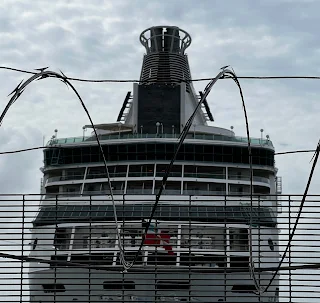

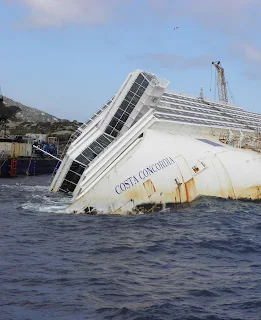
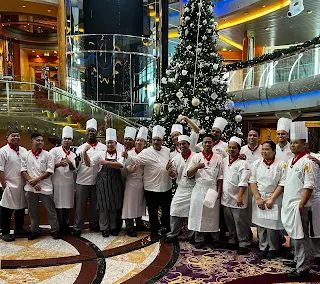



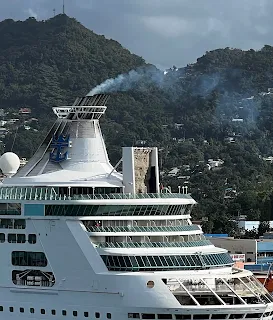

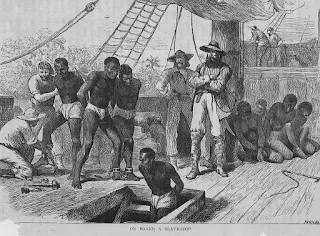
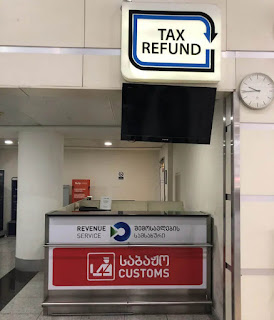









Comments